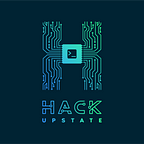Stop Overthinking Your Business Card
Written by Max Matthews - Lead Instructor @ Hack Upstate && Careers in Code
If you know me, you’ve probably heard me quoting Linked In’s survey finding that “85% of all jobs come from networking.” We are constantly encouraging our students to network, whether it’s attending local events like OpenHack or Community Cup, tech conferences like RocOn.Tech, or dedicated events like Erie 21 Lock 4’s Summer Networking Event (hopefully we’ll see you there on 7/26/23 @ 5:30 pm). Sure not every conversation is going to yield a job, but what it will do is build your communication skills, a top requirement we hear from employers.
While having a digital presence is important, so is having a physical presence. The number one tool, in my opinion, for developing a strong network is a business card. It bridges the gap between “a conversation” and “developing a relationship.”
So what does a business card need?
- Name
- Phone
- Website
- Title*
- Professional headshot*
That’s it, 6 simple things. Hopefully, your name & phone are self explanatory. Your email should be professional. Ideally, it’s using your own custom domain name, or a gmail address is OK too. gadgetdude(at)comcast.net (yes, that really was my first email address) is not the best look when you’re looking to build a network.
Website
And here comes one of the most common reasons I hear people are waiting to make cards: “my website’s not done!” Here’s the depressing news: you never feel like your website is complete. There’s always one more thing you want to add or a design tweak you want to make. Much like your business card, your website does not need to be an earth shattering design. Should it have a portfolio? Contact form? Resume? Short “about” paragraph? Links to LinkedIn and GitHub? Sure! But that should not be holding you back from getting your business cards made. Your website can always be updated, but your first impression and fostering a connection… you only get one shot at. Buy your domain name, put a small placeholder site there, then get your cards printed!
Title*
You also should not get hung up on your title. If you are learning to be a full stack developer, put full stack developer! No one said you had to put “beginner,” “aspiring,” or “junior” as part of your title. Your title should represent the work you’re trying to foster throughout your networking. The reason this has an asterisk next to it is you might not know yet what kind of job title you’re aiming for. That’s fine! Skip this requirement. However, having a title gives the business card reader context into who you are. Keep in mind that they may have received 25 other business cards at that same networking event. Your job title is a reminder of not just who you are, but what you do.
Headshot*
This can be a controversial topic. On one hand, it can help jog the card recipient’s memory of who you are. On the other, it can introduce bias & discrimination. If it fits into your design, it’s an element to consider.
Physical Address
You’ll notice I’ve left your physical address off the list. If you have an office address, great! Put it on there. But the fact of the matter is if someone is going to do business with you, chances are they’re going to get in touch with you via email or a phone call. You should not put your home address on your card.
Design (🤦)
Now for the number one excuse I hear: “I haven’t gotten my card printed yet because of the design.” Don’t repeat this scene from American Psycho. It is totally fine to use a template from VistaPrint or Canva. Very few people are going to have a thought about the design of your card after the first glance. The only important part of the design I’ll mention is the size of your text. It’s very rare to design for such a small output. Once you’ve made your card, print it out in actual size — usually 3.5” x 2”! Make sure you’re happy with the size of all the text. It’ll probably look fine on the screen while it’s zoomed in, but will be tiny on the actual card when you print it. There are several times I’ve gotten a card and repeated this meme:
A couple other tips
I get my cards printed at VistaPrint, which has gotten pricier over the years, but you can save by buying in bulk. Make sure you try a couple coupon codes, they always have a sale running.
Moo is a higher end option if you’re looking for alternatives. You can also send your order off to Staples and often pick it up the same day if you need your cards fast. I don’t recommend printing them on your own, but when you’re in a pinch, it’s better than nothing.
Make it Unique
Try to make your card unique by paying a bit more. My personal cards are super thick and feel closer to a credit card. My most recent cards are “soft touch” so they’re a little squishy and different to what you’re expecting the typical business card to feel like. While it adds to the cost, it also is a conversation starter if the recipient comments on it.
Max Matthews is Lead Instructor with Hack Upstate’s Careers in Code program, a bootcamp for women and people from marginalized groups. While not teaching others to write code, he focuses on a wholistic approach to make sure students not only have the technical skills to succeed, but also the communication and project management skills most in demand in the workforce. He brings a decade of on the job experience into the classroom.
